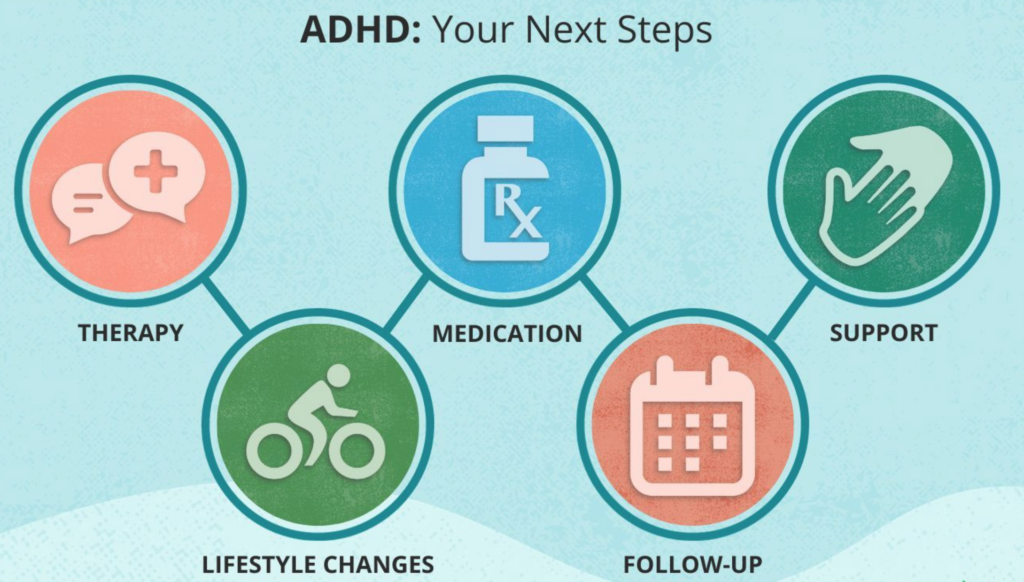How Therapy Can Transform ADHD Management
Therapy: A Transformative Tool for ADHD Management
While medications address the core symptoms of Attention Deficit Hyperactivity Disorder (ADHD), therapy focuses on the emotional, behavioral, and social challenges associated with the condition. For adults with ADHD, therapy can provide the structure, strategies, and support necessary for long-term success in managing symptoms.
This article delves into how therapy complements ADHD treatment, the types of therapeutic approaches available, and why it’s a crucial part of a holistic management plan.
The Role of Therapy in ADHD Treatment
ADHD doesn’t only affect focus and impulsivity—it often comes with challenges like emotional dysregulation, low self-esteem, and difficulties in relationships or work. Therapy helps address these aspects by:
- Teaching practical coping strategies
- Building emotional awareness and control
- Improving organizational and time management skills
- Enhancing communication and relationships
Therapy also empowers individuals to understand their condition better, fostering self-acceptance and resilience.
Types of Therapy for ADHD
1. Cognitive Behavioral Therapy (CBT)
CBT is one of the most researched and effective therapies for ADHD. It focuses on identifying negative thought patterns and replacing them with constructive behaviors.
How it Helps:
- Improves problem-solving skills
- Builds effective time management and organizational strategies
- Addresses emotional challenges like frustration and self-doubt
Example: Kavya, a 30-year-old marketing executive, struggled with missed deadlines and self-criticism. Through CBT, she learned to break tasks into manageable steps, set realistic goals, and practice self-compassion.
2. Mindfulness-Based Therapies
Mindfulness involves training attention and awareness to remain present and engaged in the moment. It helps individuals with ADHD manage impulsivity and reduce stress.
How it Helps:
- Increases focus and reduces distractions
- Improves emotional regulation
- Reduces anxiety and stress associated with ADHD
Example: Ravi, a 40-year-old teacher, used mindfulness techniques to recognize and interrupt his pattern of reactive decision-making, improving his interactions with colleagues and students.
3. Psychoeducation
Psychoeducation equips individuals and their families with knowledge about ADHD, its impact, and strategies for managing it effectively.
How it Helps:
- Fosters understanding and acceptance of ADHD
- Builds realistic expectations and supportive relationships
- Enhances collaboration between individuals and their support networks
Example: Shreya, a 27-year-old graphic designer, involved her family in psychoeducation sessions, helping them better understand her struggles with focus and how they could support her.
4. Coaching and Behavioral Interventions
ADHD coaching focuses on practical, action-oriented strategies to meet daily life goals. Behavioral interventions use positive reinforcement to encourage desired behaviors.
How it Helps:
- Develops personalized routines and structures
- Reinforces accountability and motivation
- Encourages habits that promote success
The Benefits of Therapy in ADHD Management
Therapy provides tools that extend beyond managing ADHD symptoms. Its benefits include:
- Emotional Resilience: Therapy helps individuals manage frustration, overwhelm, and emotional ups and downs.
- Improved Relationships: By developing better communication and conflict resolution skills, individuals can strengthen personal and professional relationships.
- Sustainable Growth: Therapy focuses on building lifelong skills, fostering independence, and reducing reliance on external interventions.
How to Get Started with Therapy
- Choose the Right Therapist: Look for professionals experienced in ADHD treatment.
- Set Clear Goals: Identify specific challenges and areas for improvement.
- Stay Committed: Consistency is key to achieving long-term benefits from therapy.
The Perfect Pairing: Therapy and Medications
For many adults, therapy works best when combined with medication. Medications help manage immediate symptoms, while therapy builds the skills and strategies needed to thrive. This holistic approach ensures comprehensive care for ADHD.
